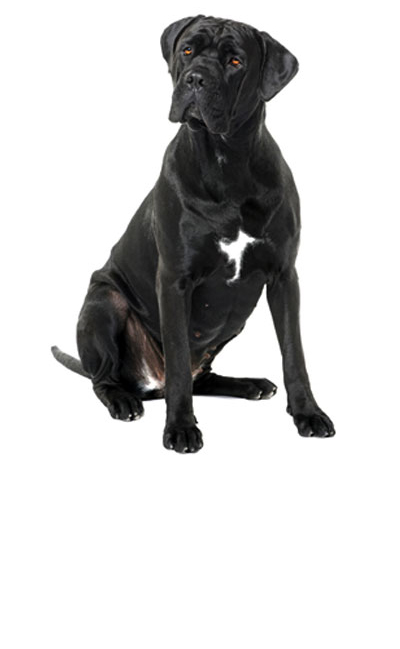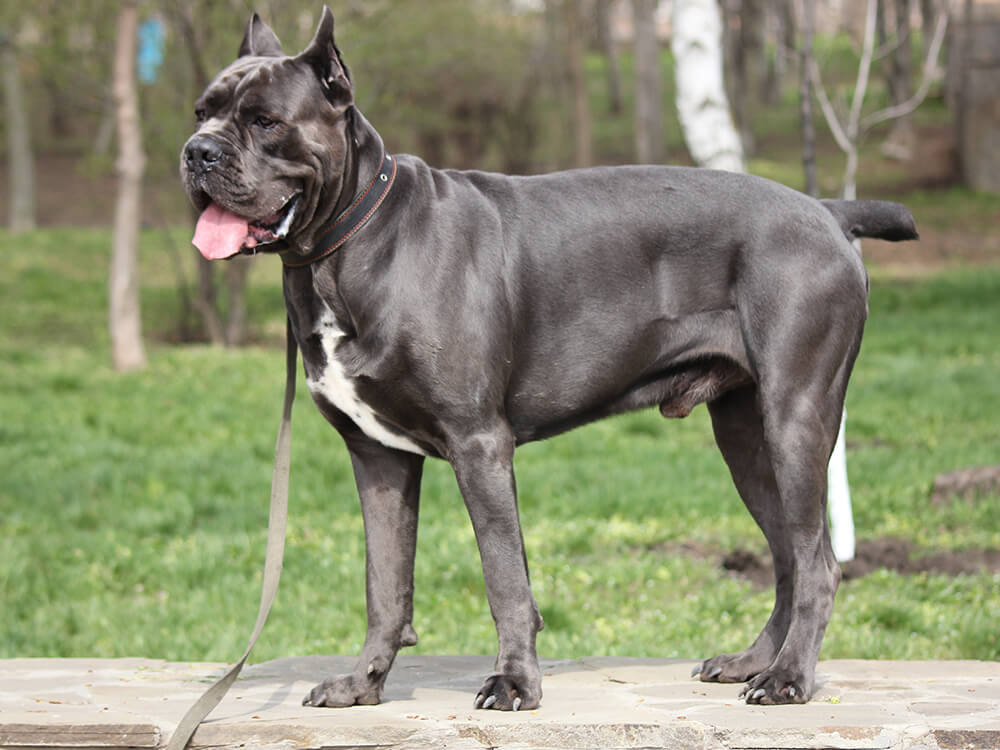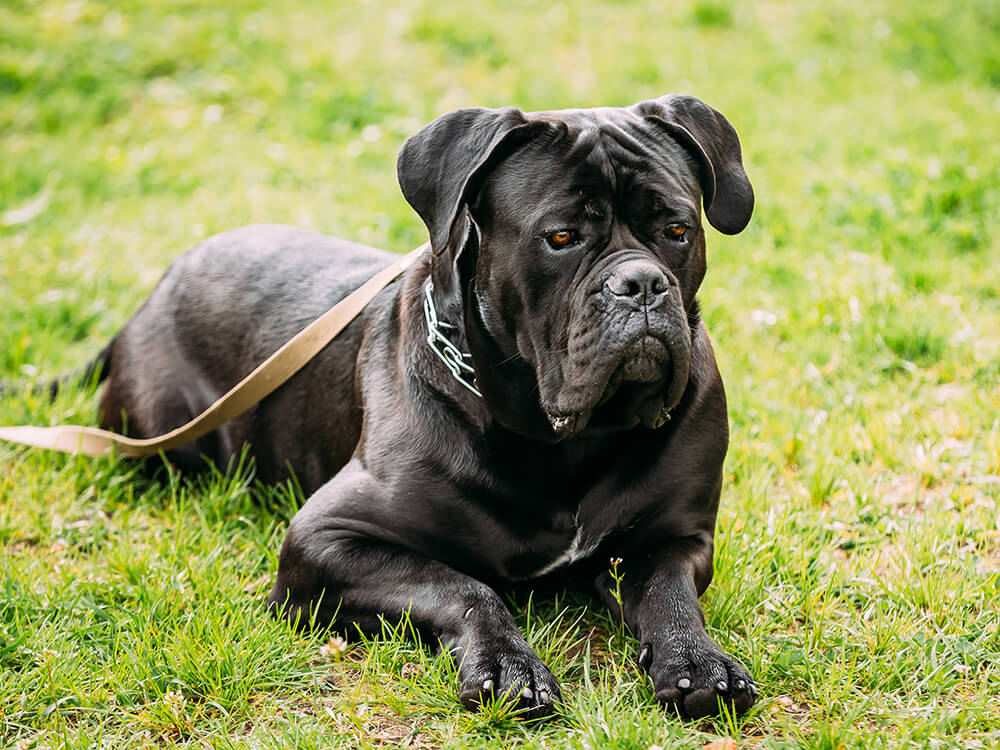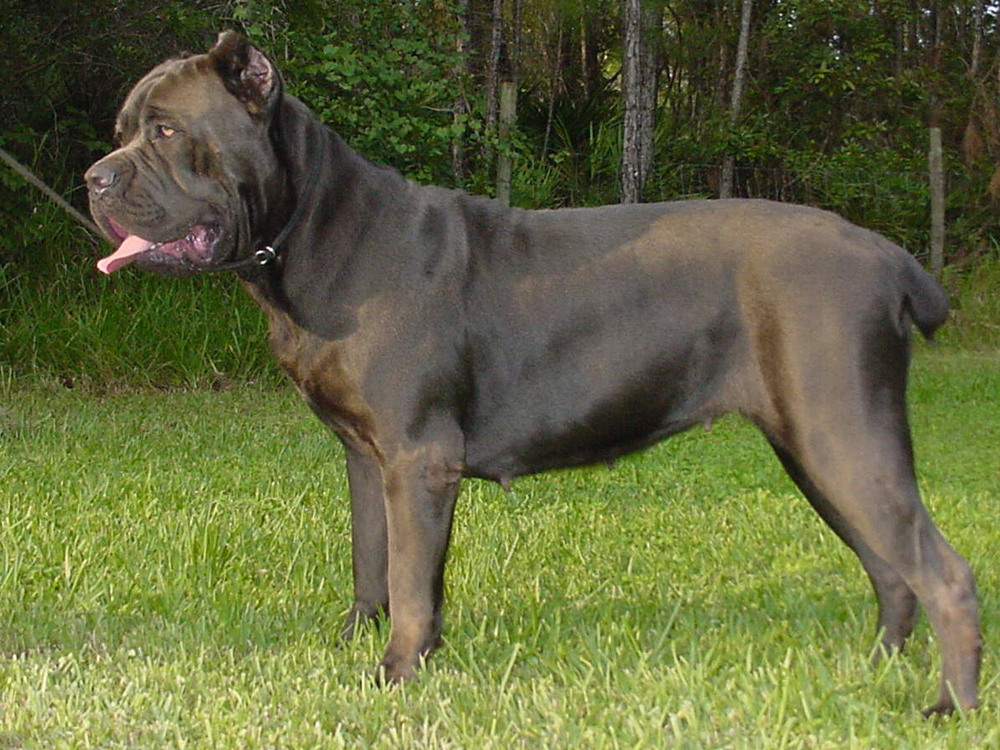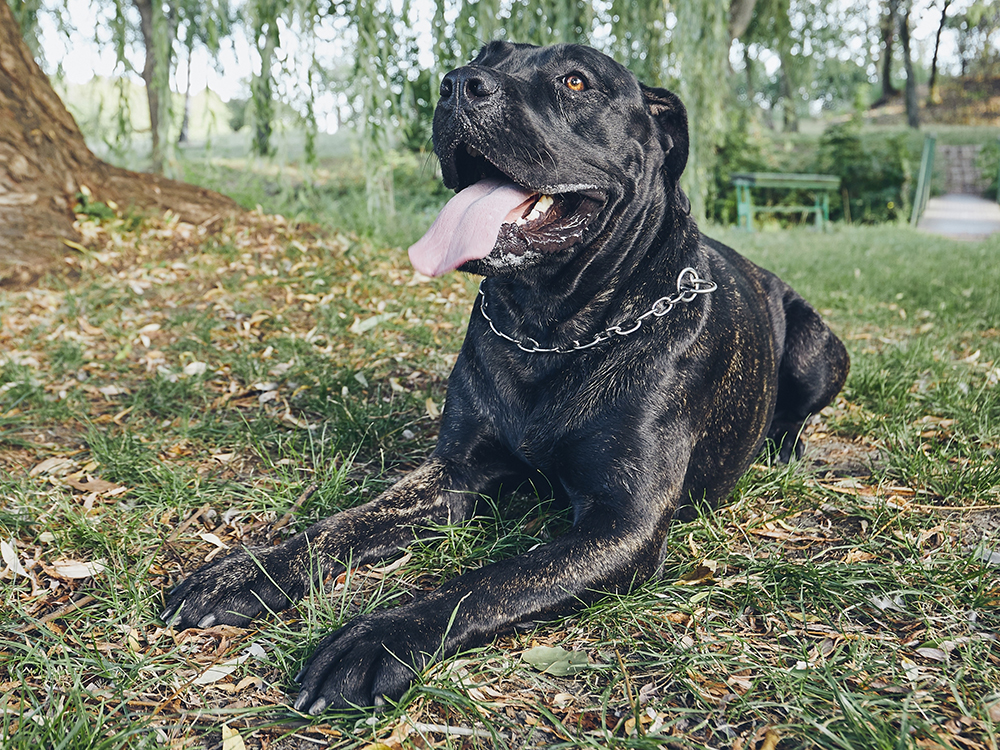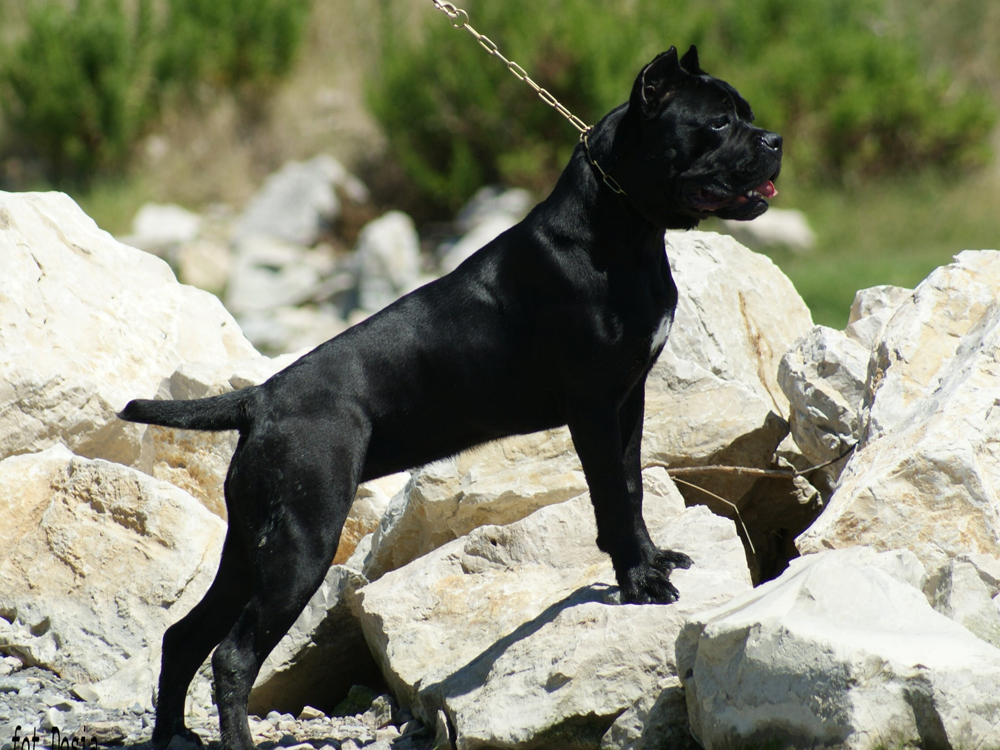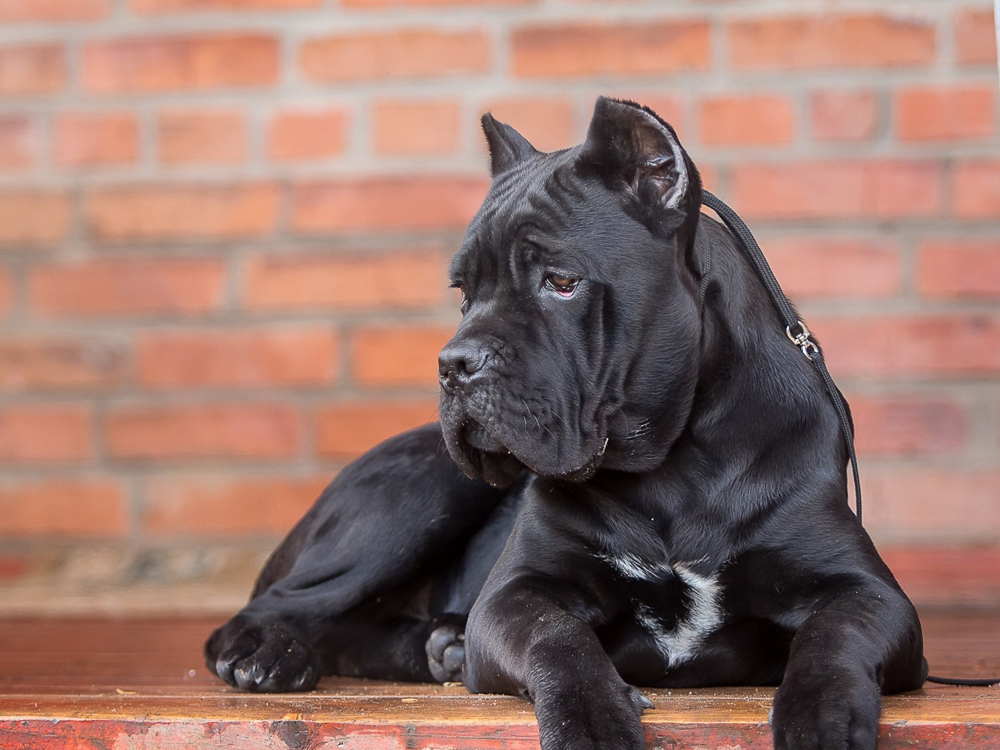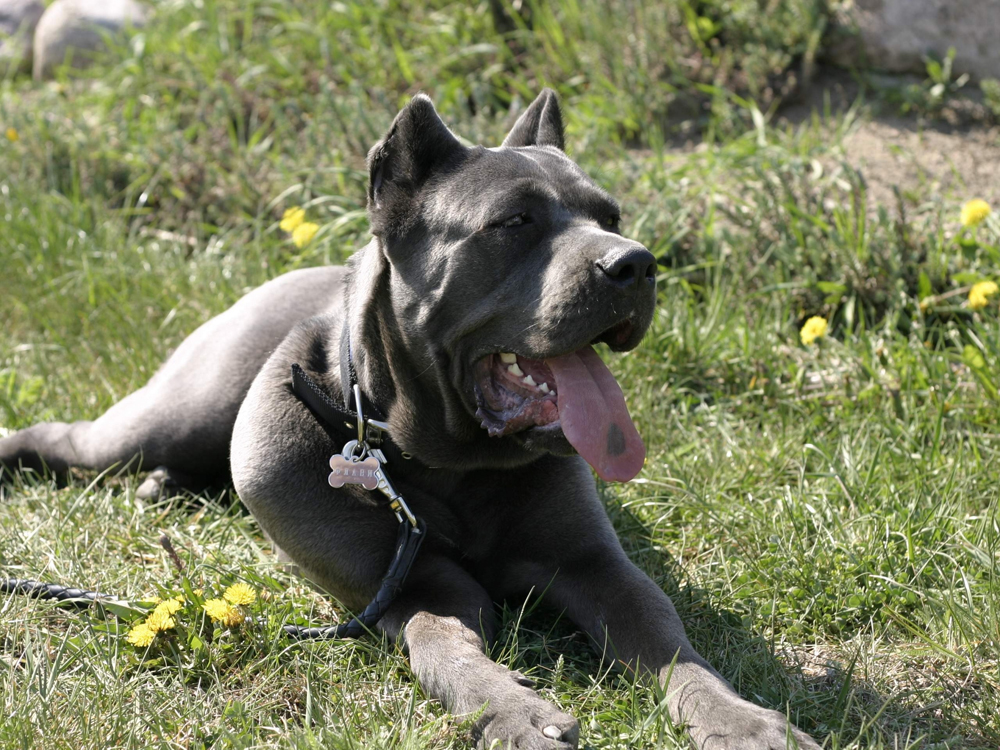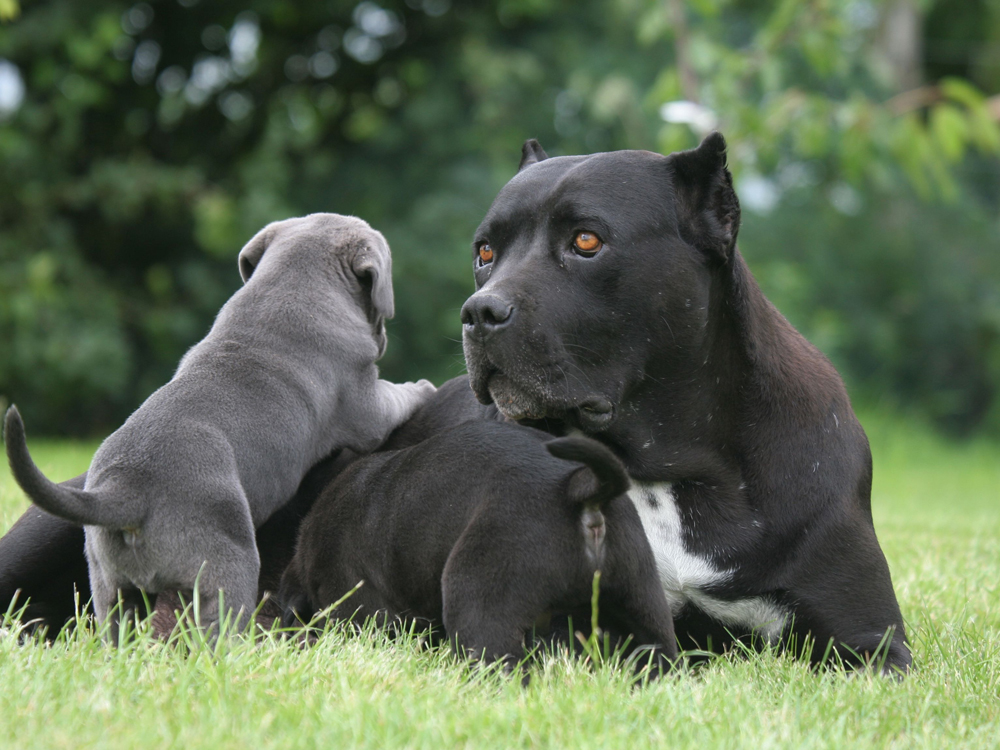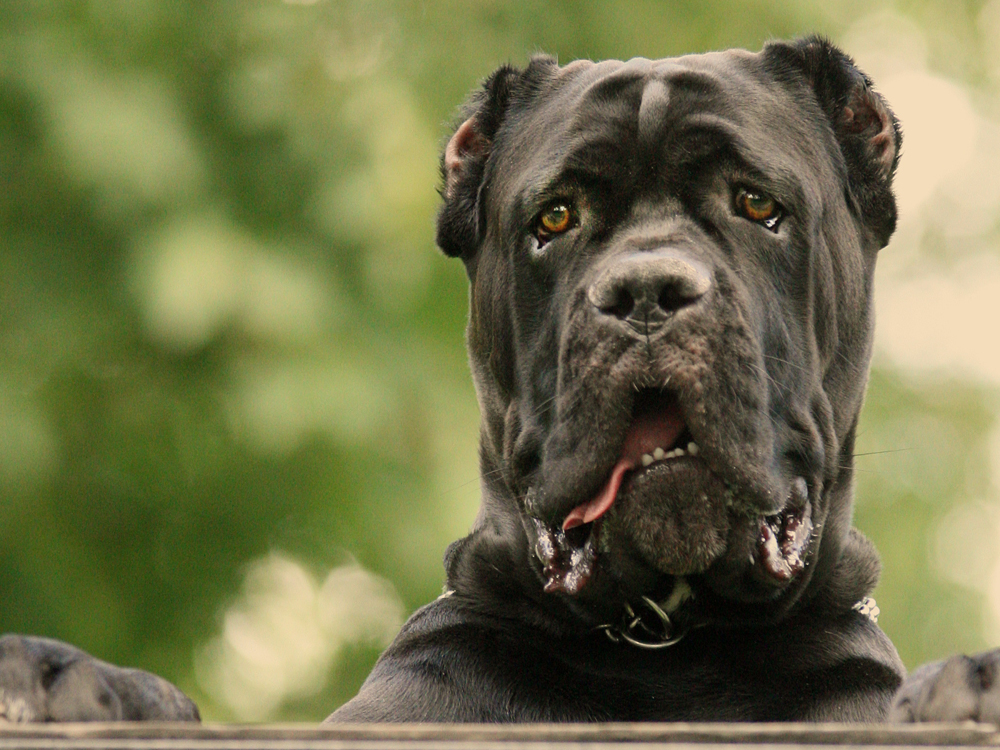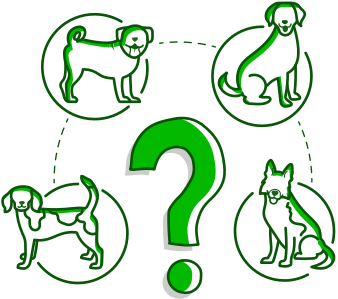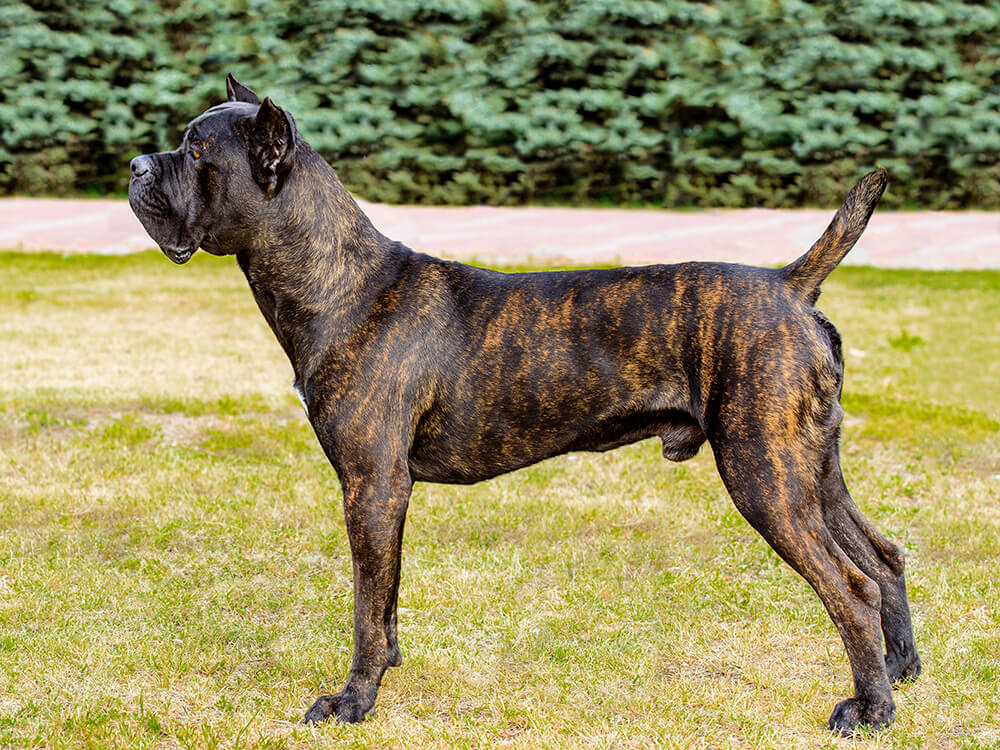
Cane Corso Breed Pictures
Vital Breed Stats
| Height: | 64 - 68 cm M | 60 - 64 cm F |
| Weight: | 45 - 50 kg M | 40 - 45 kg F |
| Life Expectancy: | 10 - 13 years |
| KC Registered: | No |
Breed Characteristics
| Size: |  |
| Grooming: |  |
| Exercise Level: |  |
| Trainability: |  |
| Barking Level: |  |
| Good with Children: |  |
| Good with other pets: |  |
| Affectionate: |  |
| Protective: |  |
| Cost to Keep: |  |
Give a thumbs up if you love the Cane Corso

0
More About the Breed
History
The Cane Corso is a descendant of Mastiff-type dogs used by the Romans in combat known as the “Canis Pugnax.” The name came from “Cane da Sorso,” which refers to catch dogs used for herding, hunting, guarding, and other rural activities. This breed also guarded homes and other properties, as well as helped farmers in herding livestock. Not only was it an ultimate working dog, it was unfortunately used as a fighting dog in arenas. The Cane Corso is a bit lighter in build compared to its predecessors but still maintains a striking look.
The Cane Corso almost faced extinction in the 70s when modern farming means drove this breed jobless. Breed enthusiasts put on the effort to recover it, although its numbers are still low to this day. It was recognised by the Italian Kennel Club in 1994 and the American Kennel Club in 2004. The Kennel Club is yet to recognise the Cane Corso.
Appearance
The Cane Corso is a handsome, powerful and well-muscled large dog. It is less bulky compared to other Mastiff-type dogs. It weighs 88 to 110 pounds and stands 58 to 66 centimetres at the withers. This athletic dog has a large and imposing head, which is said to be its most important feature. Its muzzle is flat, wide and rectangular wand its jaw is slightly undershot. It has dark almond-shaped eyes that are always alert, black nose with open nostrils, and triangular ears.
The Corso’s coat is short, dense and glossy outer coat paired with a light undercoat. It comes in various colours such as black, grey, fawn, stag red, and may or may not have brindling. This breed tends to have a little white spot on its chest, toes and bridge of its nose.
Grooming
Grooming-wise, it is rather low maintenance as it only needs to be brushed weekly, which should become more frequent during shedding season (spring and autumn). It can be bathed as needed.
Don’t forget to brush its teeth at least twice a week to reduce the chances of bath breath, tooth decay and gum disease. Its ears should also be kept clean and dry to avoid infections. Its nails should also be regularly trimmed when they touch the ground while walking and/or when you hear a click on the floor. Also take time to inspect if it has red spots on the skin or any fleas.
Temperament
Intelligence
The Corso does not easily trust strangers and has a tendency to be distant and wary. It is important to keep a watchful eye when children’s friend come over because it is very protective and may wrongly judge a situation when the kids become too boisterous. Early socialisation with various people and animals, as well as exposing it to different places and situations will make it a well-rounded dog.
This breed is highly intelligent and trainable especially that it loves to please its owners. However, the Corso is a challenging breed to raise and is not suited for first-time owners. It needs an experienced owner that is firm and authoritative. The alpha role in the household needs to be established early so it can accept its place in the pack. It is also best suitable for active owners that love the outdoors. It is definitely not an apartment dog and would thrive in the countryside. Too much idle time could lead to destructive behaviour.
Nutrition
Typical calorie needs of an adult Cane Corso, weighing 100 pounds, per day:
- Senior and less active: up to 1,960 calories daily
- Typical adults: up to 2,200 calories daily
- Physically active/working dogs: up to 2,450 calories daily
Feeding
Health
Exercise
Cost of Ownership
Raising a dog involves commitment and financial capacity. Don’t let a cute puppy distract you from the fact that having a pet dog is expensive. The cost of owning a Cane Corso is not cheap because it is a large dog with plenty of needs. Firstly, it is a rare breed in the UK so you would have go on a waiting list and set aside £600 to £1,200 for a well-bred Corso puppy. Insuring it will set you back £40 to £100 monthly, depending on the coverage.
Basic necessities such bed, leash, grooming essentials, and toys, will cost £300. Food and treat costs for this big dog can be around £50 a month. Veterinary costs (routine check-ups, vaccinations, deworming, etc) can reach £1,000 annually, sans long-term treatments and surgeries.
Is a Cane Corso Right for You?
- The Cane Corso is large dog with high exercise needs.
- It is a handsome dog with a short coat that is low maintenance.
- The Corso is loyal, protective and gentle to its owners but tends to be aloof and wary of strangers.
- This breed is not for first-time dog owners or families with young children.
- It thrives in the outdoors and is not suitable for apartment living.
